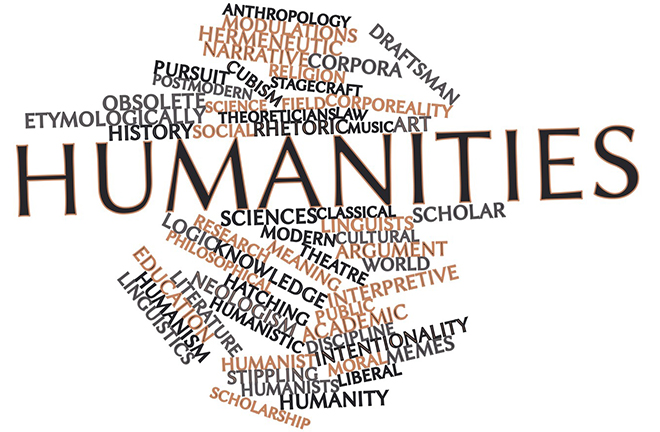Disciplinary orientation and research objectives of digital history

Exploring an intellecutal system of digital humanities is a great task. Photo: TUCHONG
With the continuous iteration and upgrading of digital technologies, digital humanities have rapidly advanced into various disciplines in the humanities and arts in China over the past decade or so. In the field of history, this has led to the emergence of a relatively independent sub-discipline—digital history. Today, the integration of new technologies with historical research is flourishing. It is therefore timely to discuss and clarify the disciplinary orientation and research standards of digital history.
Disciplinary orientation
Despite the rapid expansion of and growing attention to digital history in recent years, there remains a lack of consensus in the academic community regarding its fundamental issues such as its disciplinary orientation and its connotation and extension. In reality, due to the complexity of its research objects and the subjectivity of research methods, the humanities cannot be neatly fitted within a predefined “discipline” framework. This has been the case for a long time. The humanities are inherently interdisciplinary, yet they each maintain their own core disciplines.
Regardless of how it is defined, digital history should be first and foremost considered a branch of history. Many scholars agree that digital history represents a fusion of technology and history, involving the use of digital methods to study historical subjects. This involves both the adoption of digital research objects and technological research methods. Digital history is not merely a tool or a supplement; it represents a new way of thinking and an expansion of historical research. No matter how novel the material form or how advanced the technical means used, the core focus of digital history remains on addressing historical questions. The interdisciplinary fusion of the humanities and technology has given birth to digital history, but interdisciplinarity is an effort to expand the boundaries of disciplines, as well as an attempt to address problems that disciplines cannot handle or solve rather than a simple combination of disciplines.
Research objectives
Digital history represents a novel attempt to conduct and advance historical research using digital technology, which not only clarifies its position within the discipline of history, but also underscores that digital history must aim to respond to and solve historical questions while adhering to the fundamental principles of historical scholarship. Such an approach will facilitate meaningful academic dialogue and mutual stimulation between digital history and traditional history, ultimately integrating digital history as an indispensable component of the discipline.
Seeking the true past with scientific spirit is the core goal of modern history, and digital history should also adhere to this principle. Digital history should strive to uncover hidden aspects of the past, particularly those that are difficult to access without digital technology, by revealing more historical truths to foster academic integration and demonstrate its academic value. Pursuing truth as its highest goal, historical studies place particular emphasis on the standardization of research methods and approaches, emphasizing the collection and scrutiny of primary sources and the importance of combining sources and interpretation tools to uncover historical truth. Sources are the foundation and core of historical research. Although digital technology can play a role in historical work, including preserving and utilizing sources, aiding in teaching and visualization, and supporting academic research at multiple levels, the real measure of its value lies in its effectiveness in handling sources and presenting historical truths. Interdisciplinary techniques such as text analysis, image interpretation, and quantitative analysis are evaluated based on their ability to improve the analysis of sources and the clarity of historical insights they provide. The advent of digital tools and methods has enabled research that was previously impossible, raising new questions and expanding the scope of historical inquiry.
Going forward
Since the end of 2022, numerous large language models have been launched. Artificial intelligence is not only invading history classrooms, but it is also changing the way history is studied. Although current large language models have yet to succeed in key tasks valued by historians, such as linking historical sources and independent analysis, they merely represent complex emergent phenomena arising from scaled-up neural networks rather than theoretical breakthroughs or sophisticated algorithms. The principles behind these phenomena are not yet fully understood by scientists.
Nevertheless, these models rely on extensive training with large text datasets, and the object of historical research is precisely text. As digital infrastructure expands and historical sources become increasingly digitalized, there is potential for machines to play a significant role in text-based historical research for truth seeking. When machines can be fed with large amounts of historical data, they may increasingly take over tasks performed by humans, such as comparing and interpreting historical sources. More innovative intelligent systems are likely to emerge in the future, and it will be necessary to not only redefine digital history but also reconsider the very nature of history and the humanities as a whole. The truth of history is not only hidden in historical sources, but also often at the intersection of history and other disciplines. The next generation of historians must be equipped with a broader range of interdisciplinary knowledge and skills. Digital technology and computing should not be seen as a “black box” by humanities scholars, but rather as a “furnace.” Today, history should emphasize natural language processing and machine learning within information technology when cultivating the next generation of scholars. However, merely mastering interdisciplinary methods without a deep understanding of the historical materials and context may yield a researcher who is a “knowledgeable ignoramus.” Digital history is an open academic field. But in the case where disciplinary boundaries are increasingly blurred, it is more necessary to clarify its academic position and the responsibilities of its historians so as to ensure that the development of this new field will not “go astray.”
Liang Chen is a professor from the School of History at Nanjing University.
Edited by ZHAO YUAN

 PRINT
PRINT CLOSE
CLOSE